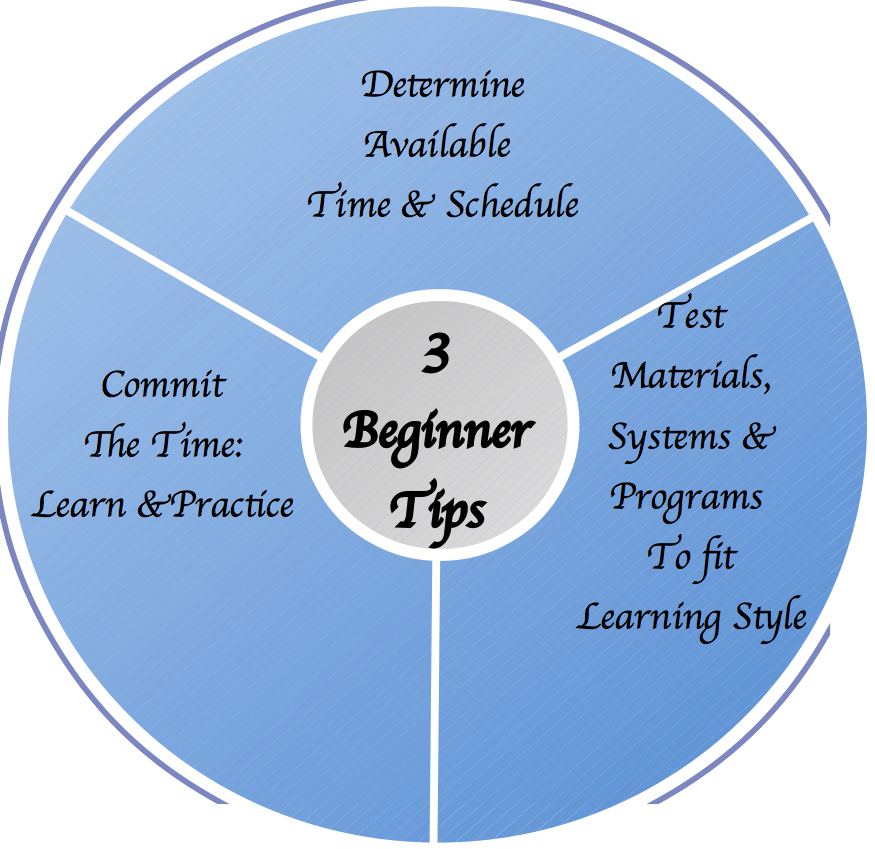3 Tips for Adult Foreign Language Learners – Part 1: Beginners
 (Updated 5/18/2021)
(Updated 5/18/2021)
Learning a new foreign language as an adult is not difficult per se: Remember – you learned your first language as a child.
But - when we marvel at how easily a child learns a language, we often forget a crucial factor: As an adult, you cannot spend as much time learning a new language as children do in their early years.
And yes, adults do differ in their aptitude for learning a new language, as much as they differ in their ability for learning to play piano, sing, dance, play tennis, drive a car, etc.
But the fact that you've acquired your first language should give you confidence that you can also learn a second language. The only question is: Can you mount and sustain the effort needed for success?
Benefits of the Internet
The internet makes is easier than ever to learn a new language. In the past we were limited to books, records, tapes, CDs, classes, personal tutoring, and such, when we had little contact with native speakers.
Now we can use mobile apps and connect to interactive online language programs, online tutoring, language forums, and global community chat sites.
We can read foreign newspapers online with the help of online dictionaries and programs, and we can watch foreign video clips, TV programs, or movies.
The Challenge Beginners Face
However, before you, as a beginner, can benefit from the many additional opportunities of the internet, you have to acquire some basic knowledge of the new language.
And, assuming that you don't live in a country where the language is spoken, you have to create sufficient exposure to the language, so that it begins to “stick.”
If you watch children learn their first language, you realize how important exposure and repetition is: As soon as a children start talking, grasping the world with language seems to be their main occupation.
Here are three (3) basic tips for adult beginners who want to manage their learning proactively:
1.Determine Your Available Time and Schedule
If you are motivated to learn a new language - realizing that it takes time and effort - think about when and how much time you can allocate to learn.
Once a week will not be enough. Ideally, you should learn daily: 10 minutes for 6 days will be better than 1 hour, once a week.
Maybe you can schedule some time in the morning, or at lunch break or perhaps in the evening. And especially, if you take a traditional classroom course, or engage a one-on-one tutor, you have to allow time for homework and reviews.
Put it on your schedule and try to stick to it as much as you can.
2.Test Materials/Systems/Programs That Fit Your Learning Style
Unless you already know how you best learn, finding the right program may take some research and experimentation.
If classroom courses or personal tutors work best for you, you can also get advice for additional materials.
If you are an auditory learner, audio CDs (e.g. Pimsleur) may work for you. If you are a visual learner, traditional language books may be an option.
However, we believe nothing beats the interactive online language programs and mobile apps that you can find on the internet.
This article in PC Magazine: The Best Language Learning Software provides a good list, and the language learning universe has even expanded since the article was published last year.
(In May 2021 we were made aware of a post "What Is The Best Way To Learn A Foreign Language?", in which Katie Holmes compiles a list of many different tips people have for language learning. Maybe one of them works for you!)
But don't believe the “Fluent in 10 days” marketing promises or buy the $350 program that you see advertised - at least not yet.
Even most fee-based CD or online language programs have trial subscriptions or short courses or let you start with free, such as LingQ.com.
There are many completely free programs as well, especially for the well-known European languages, e.g Duolingo.com or our gamesforlanguage.com.
Moreover, you may find that using more than one system or approach is a great way to go: By alternating between various programs, you can strengthen different skills or just avoid the boredom that often creeps in with one single program.
3.Commit the Time
Whatever methods you chose, it is important that you commit the time to learning and practicing.
Practice is key – whether learning to play the piano or learning to speak another language. You have to practice!
Only with practice can you move vocabulary, that you just learned, from your short-term to your long-term memory, or learn to pronounce the new foreign sounds.
That's why many of the online language programs send out periodic or daily reminders.
Duolingo is especially good at that. By getting reminded of your practice “streak,” you may be motivated not to break it!
And if you're able to sustain your effort, you'll be amazed at how much you'll have learned by the end of your beginner course.
You may be able to read short online newspaper articles or understand chunks in the foreign movie you are watching...
Once you have mastered some basics of the new language, you can even find more opportunities on the internet to hone specific language skills – which is our topic of Part 2: Tips for Non-Beginners.
